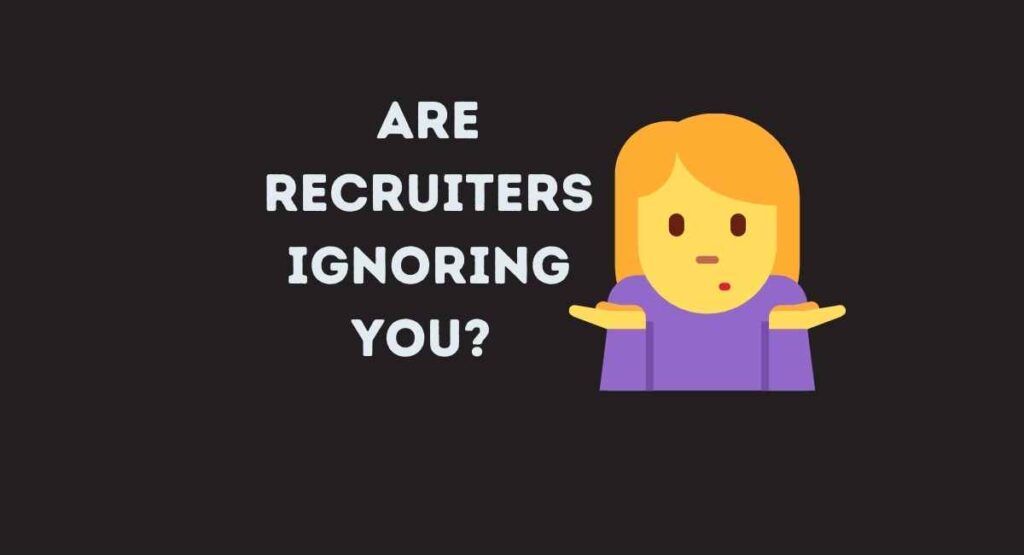Are you still receiving calls for job opportunities in a domain you’ve left behind? Imagine you’ve transitioned from a role in Customer Support at XYZ company, where your daily routine involved resolving customer queries, to a career in Digital Marketing, focusing on on-page and off-page SEO, and content writing. You’re now eager to receive calls for jobs related to your new expertise in SEO. The key to making this shift evident to potential employers lies in your resume. By strategically incorporating specific keywords like “On-Page SEO” and “Off-Page SEO” into your CV, you can align your profile with your new career aspirations. In this article we will guide you on how to build a resume with targeted job keywords.
Why It’s Important to Build a Resume with Targeted Job Keywords
Many companies now use Applicant Tracking Systems (ATS) to scan resumes for specific keywords. These systems help HR professionals quickly identify candidates whose resumes match the job requirements. Including the exact keywords related to the job you’re targeting can significantly increase your chances of getting noticed for relevant roles.
Benefits of Using Targeted Keywords in Your Resume
- Higher Visibility in ATS: Resumes with relevant keywords are more likely to be picked up by ATS, increasing your chances of being shortlisted.
- Aligning with Job Descriptions: By using keywords that match the job description, you demonstrate that your skills and experience are directly relevant to the role.
- Standing Out to Recruiters: Recruiters can quickly identify your suitability for a position when your resume contains the keywords they’re looking for.
Disadvantages of Not Building a Resume with Targeted Job Keywords
Failing to tailor your resume with targeted job keywords can lead to missed opportunities. Candidates who don’t include relevant keywords might be overlooked, even if they have the necessary skills and experience. Additionally, resumes with complex designs, graphics, or non-standard fonts might not be correctly parsed by ATS, leading to rejection.
Potential Risks of Ignoring Keywords
- Missed Opportunities: Without the right keywords, your resume might not pass the initial ATS screening, leading to missed interview opportunities.
- Misinterpretation of Skills: A lack of targeted keywords can lead to a misinterpretation of your skills and experience, making it harder for recruiters to see your suitability for the role.
- Technical Parsing Issues: ATS might not correctly read resumes with unconventional formats, leading to automatic rejection.
Check Keywords with the Ahrefs Free tool
Guide on Where to Place Targeted Keywords in Your Resume

To enhance the effectiveness of your resume, it’s crucial to strategically place targeted keywords. Here’s an extended guide on how to do this:
Under Your Name
As mentioned, include keywords in your professional title or headline. This immediately signals your expertise and area of specialization.
In the Description
Weave keywords naturally into your summary or objective statement. This section should encapsulate your professional identity and how it aligns with the job you’re applying for.
In the Skills Section
List skills that are directly relevant to the job, using the exact keywords found in the job description. This section is often scanned by ATS for matches.
In the Job Experience Section
Describe your previous roles and achievements using keywords. This shows how your past experiences align with the job requirements.
In Achievements and Awards
If you have any notable achievements or awards, use keywords to describe them. For example, “Awarded for Outstanding Performance in Digital Marketing Campaigns.”
In Project Descriptions
If you’re including any significant projects, use keywords to describe your role and the project’s outcome. For example, “Led a team in developing a successful SEO strategy, resulting in a 40% increase in web traffic.”
In Certifications and Training
If you have relevant certifications or have undergone training, include keywords in their descriptions. For instance, “Certified in Advanced Google Analytics.”
In Hobbies and Interests
Occasionally, if your hobbies align with the job, you can include keywords here too. For example, “Passionate about content creation and SEO trends.”
Tips for Effective Keyword Placement
- Be Specific: Avoid vague terms. Use clear, specific keywords that directly relate to the job you’re applying for.
- Use Action Words: Incorporate action verbs that show you’re a proactive individual. Words like ‘achieved’, ‘improved’, ‘managed’, and ‘created’ can be powerful.
- Quantify Achievements: Whenever possible, use numbers to quantify your achievements. For example, “Increased sales by 20% through targeted digital marketing strategies.”
- Avoid Overused Phrases: Steer clear of clichés and overused terms like ‘hard worker’ or ‘team player’. Instead, demonstrate these qualities through specific examples and achievements.
By carefully placing targeted keywords throughout your resume, you increase the chances of passing through ATS filters and catching the attention of hiring managers. Remember, each word on your resume should contribute to a clear picture of your qualifications and suitability for the job.
Ready to transform your resume into a powerful tool that speaks directly to your dream job? At Content Ladder, we specialize in crafting resumes that stand out. Our expertise in embedding targeted job keywords ensures your CV not only passes through Applicant Tracking Systems but also catches the eye of recruiters. Whether you’re shifting careers or aiming to climb higher in your current field, we’re here to help you highlight your skills and experiences in the most impactful way.
Don’t let your resume get lost in the crowd. Visit Content Ladder today to take the first step towards a resume that opens doors to your future!

